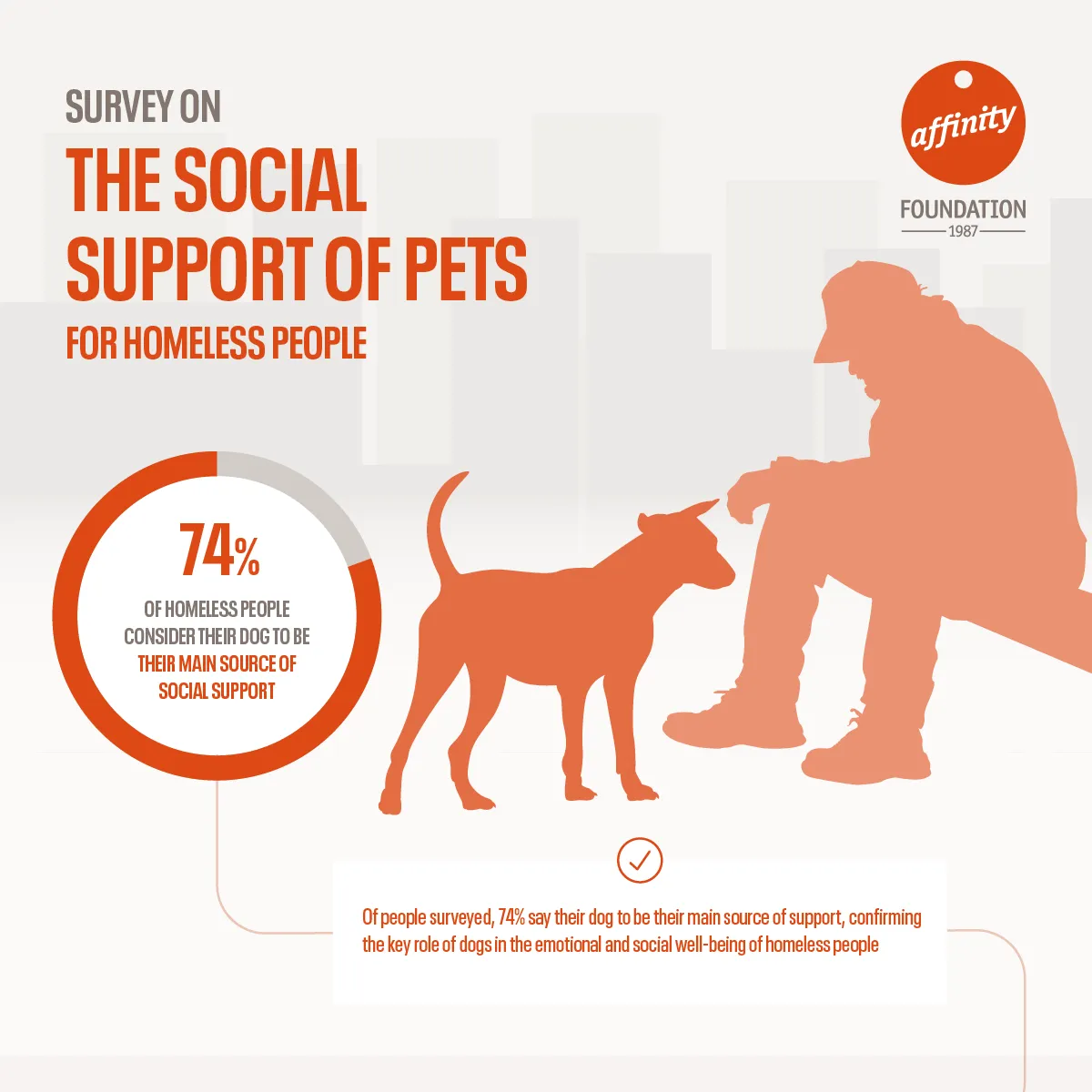Dogs, the main source of support for homeless people

A recent study, carried out in collaboration with our Affinity Foundation Animals and Health Chair at the Autonomous University of Barcelona (UAB) and the Spanish Foundation for Advice and Action in Defence of Animals (FAADA), has provided evidence about the essential role that dogs play in the lives of homeless people. According to the results, 74% of participants consider their pet to be their main source of social support.
Dogs as a refuge
People who have lost their homes live in a state of extreme vulnerability. Not only are they lacking a roof over their heads but they also face social isolation, uncertainty and the daily struggle to satisfy basic needs. In this context, the bonds that they build with dogs become a fundamental pillar of emotional support: they offer company and also provide emotional stability and help in overcoming daily adversity.
The benefits of living with a dog are not exclusive to homeless people. Other studies and animal-assisted therapy programmes have demonstrated that the bond with dogs improves emotional, cognitive and social wellbeing among diverse groups, including those who suffer from social vulnerability, gender-based violence or exclusion. However, this bond acquires an even more profound and vital meaning for homeless people.
Why are dogs so important for homeless people?
There are many reasons. Firstly, dogs are always there to spend time with and to do things with, which reinforces the bond of affection. In addition, their constant presence combats the feeling of loneliness, something that affects the majority of homeless people. Dogs become confidants, providing a relationship based on trust and affection that is difficult to find on the street. Physical contact, in the form of stroking and signs of affection, also plays an extremely important role, and it offers the consolation and warmth not available from other sources.
In addition, the act of caring for a dog is a daily responsibility that provides meaning and purpose. For people suffering from exclusion, knowing that another life depends on them can be a reason to keep going, to feel useful and that their life has a positive impact on another being.
The Impact on Mental and Social Health
“Homeless people present with a compromised social network, from both a quantitative and qualitative perspective. People who live on the street and have more social support demonstrate better emotional health and present with fewer symptoms of depression, less suicidal ideation and greater prosocial behaviour.”
Jaume Fatjó, Director of the Affinity Foundation Animals and Health Chair at the UAB
This confirms that social support, in this case provided by dogs, has a direct impact on the mental health of homeless people. Those people with a stronger social network – including a relationship with their pet – tend to have better emotional health and a greater capacity for facing up to the challenges of life on the streets.
A bond for life
To summarise, the bond between homeless people and their pets is about much more than just company. These dogs represent a vital source of emotional support, helping their owners deal with loneliness, stress and uncertainty. In a life full of difficulties, this bond becomes an emotional lifeline, offering affection, responsibility and a renewed sense of purpose for those people who need it the most.
Social Support Study
The Affinity Foundation’s study in collaboration with FAADA on the social support of pets for homeless people



